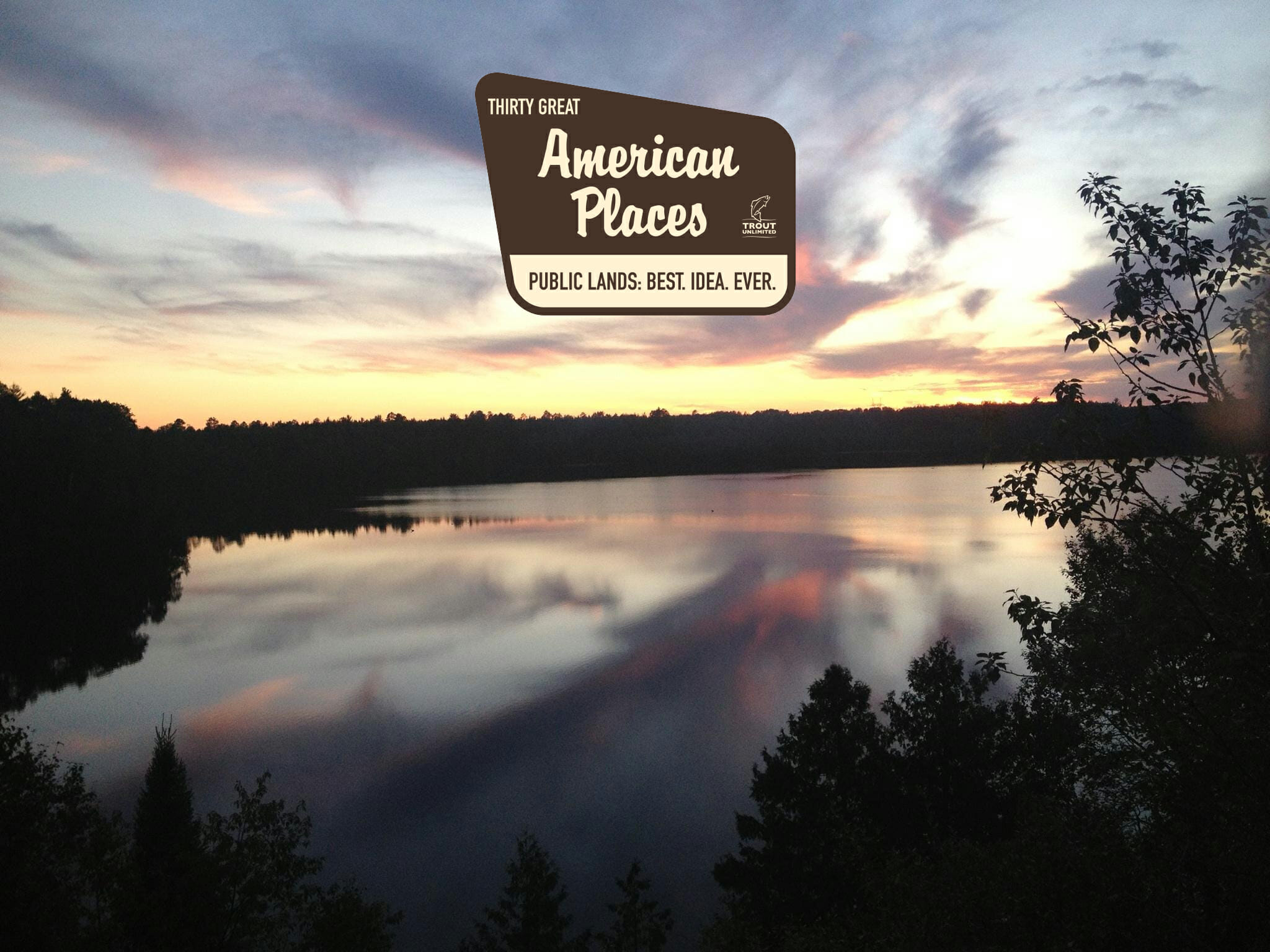Region: Midwest
Activities: Fishing
Species: Brook, brown and rainbow trout; steelhead; Chinook and Coho salmon
Where: The Huron-Manistee National Forest stretches nearly one million acres across the northern half of Michigan’s Lower Peninsula, touching Lake Michigan in the west and Lake Huron in the east. Home to diverse ecosystems ranging from coastal marshlands to oak savannahs, the Huron-Manistee also contains some of Michigan’s most fabled fishing waters, including the Au Sable (birthplace, in 1959, of Trout Unlimited), Pere Marquette and Big and Little Manistee Rivers.
Why: Some of the most diverse river fishing in the Midwest–or anywhere. “Anyone who enjoys fishing will find plenty of opportunities in the Huron-Manistee,” said Jeremy Geist
a Trout Unlimited Great Lakes Stream Restoration Manager. “There are the epic rivers that draw anglers from across the country, and many from downstate on the weekends, and many lesser-known waters too. You can fish for native brookies, rainbows, browns, lake-run browns, steelhead and salmon. Waters range from small stream headwaters to big rivers best fished from a boat. Year-round, you can fish for something. Spring is peak time for steelhead, then come the major hatches, then with fall come salmon and a second round of steelhead.” One of the region’s most magical angling appeals is the strange nocturnal rite of the hex (hexagenia limbata) hatch–an emergence of gargantuan mayflies so immense that they sometimes show up on Doppler radar. “It’s a late night game,” Geist continued. “All you have are your ears, and you’re listening for the slurps. Once you hear a deep enough slurp, you know the big trout are out, and you’re casting out into the darkness. It’s not elegant; you’ll probably get caught on the cedar behind you or become tangled. But when that big fish takes, it’s an unforgettable experience.”
Local Knowledge: When it comes to the hex hatch, be familiar with the area you choose to fish…and keep your headlamp off. “It’s not the best idea to jump into a section of river without knowing it,” Geist added. “Ideally, you want a place where there’s plenty of casting space. There’s enough stumbling around in the dark already without wading in a place you don’t know.”
TU Initiatives: Working with a host of partners ranging from the U.S. Forest Service to county road commissions, TU is implementing facets of the Great Lakes Restoration Initiative to reconnect the region’s waterways and improve their resiliency. Projects include a number of stream crossing improvements and dam removals, as well as habitat restoration.
Make a difference: A dollar spent on conservation is a dollar spent for the benefit of future generations. And with recent budget proposals, those dollars and the programs they support are in jeopardy, including public lands like the Huron–Manistee National Forest. Visit Standup.tu.org to send a message to Congress that you support funding for conservation programs like the Great Lakes Restoration Initiative. Please give today to keep America’s rivers and streams cold, clean and fishable. Click here to donate



